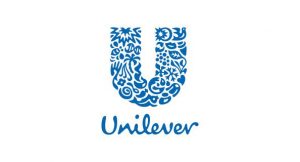Update: Farm Forward Campaign Spurs International Push to End Cruel, Previously Universal Practice
Massive News: A first-of-its-kind campaign launched by Farm Forward in 2014 has resulted in the adoption of a new technology that spares day-old chicks from being slaughtered shortly after they hatch. On December 22, 2018, The Guardian reported that the first “no-kill” eggs have reached grocery store shelves in Europe.
While no industry that raises animals for human consumption can ever be “no-kill,” broad egg industry adoption of in-ovo sexing technology could prevent the needless suffocation or maceration of at least 4-6 billion male chicks per year. Maceration—a.k.a. grinding up fully conscious baby birds—remains the most common practice for disposing of unwanted male chicks within the egg industry, but this cruel practice may soon be largely abandoned for more humane and, crucially, more profitable in-ovo sexing techniques. Rather than hatching and sexing future egg laying hens, in-ovo sexing technology allows egg producers to determine the sex of an egg days after it’s laid, long before it hatches, eliminating the need for male chicks, who are useless to the egg industry, to hatch at all.
Prior to Farm Forward’s campaign against Unilever in 2014, no animal protection group had sought to secure corporate commitments to end maceration, nor were we aware of any major governmental, corporate, or advocacy efforts suggesting that viable alternatives might be possible. “Momentum on the issue began to grow in 2014,” said The Washington Post, “when Unilever, which owns Hellman’s mayonnaise and other egg-using companies, committed to supporting in-ovo technology research and adopting it.”
Unilever, which uses millions of eggs in their products, is an industry leader on animal welfare and sustainability—they struck us as the company most likely to lead the charge. Following our campaign and subsequent negotiations, Unilever pledged to: 1) state publicly that the routine practice of macerating day-old chicks did not conform to their animal welfare policy, 2) invest in identifying and implementing an alternative to the practice, and 3) explore egg-free alternatives for their products, particularly in the event that an alternative to maceration was not found.
As we’d hoped, following Unilever’s groundbreaking public statements against the killing of male chicks the rest of the world was quick to follow. In March 2015 the German government announced that it sought to end and ban the practice of culling male chicks by 2017. Following negotiations with The Humane League, in June 2016 the United Egg Producers, an industry trade group representing 95% of U.S. egg producers, pledged to end the process of culling male chicks by 2020 “or as soon as” the technology becomes “commercially available and economically feasible.” In October 2016 The Washington Post reported that Vital Farms, a popular egg company in the U.S. that follows industry-leading welfare practices, had pledged to adopt the technology.
By the end of 2016 there was an international race to develop viable technology to address what had to us always seemed a glaring and tractable welfare problem. Oh, and in February 2016 Unilever announced plans to launch a new egg-free, vegan mayo. 😊
Farm Forward’s extensive experience leading high-level negotiations and advocacy campaigns remains a crucial part of global efforts to change the way our world eats and farms. We see opportunities where others see obstacles, and with your help we can continue to break new ground in the fight to end factory farming. These and future victories are not possible without your support.
In May 2014, Farm Forward identified a unique opportunity to apply pressure to a multinational corporation toward a first-of-its-kind victory for male breeding chicks within the egg industry. Deemed worthless by the egg industry, hundreds of millions of male chicks are killed each year in the US alone, where day-old chicks are typically ground up while fully conscious (the industry calls this practice maceration). While maceration is an industry-wide problem, Unilever, the third largest consumer goods company in the world, has been given high marks from the welfare community for improving animal welfare standards within its supply chain.

In June 2014, Farm Forward launched BuyingMayo.com and two accompanying viral videos to raise awareness about the practice of maceration by targeting Unilever’s Best Foods and Hellmann’s mayonnaise brands, which use hundreds of millions of eggs each year in the US alone. Visitors to BuyingMayo.com were asked to sign a petition requesting that Unilever develop an alternative to the practice of maceration within its supply chain.
In just two months, nearly half a million people watched our videos and more than ten thousand people signed our petition, and through Facebook and Twitter millions more were exposed to our messaging about the cruelty within the egg industry. Shortly after the campaign launched, Farm Forward entered negotiations with Unilever’s corporate affairs department, which requested that HSUS and Compassion in World Farming—which have praised Unilever’s animal welfare policies in the past—also join the discussion. Farm Forward offered to place a moratorium on our campaign if Unilever: 1) agreed that the routine practice of macerating day-old chicks did not conform to their animal welfare policy, 2) committed to investing in identifying and implementing an alternative to the practice, and 3) pledged to explore egg-free alternatives for their products, particularly in the event that an alternative to maceration was not found.
At the end of August, Unilever agreed to Farm Forward’s terms and updated their global website to reflect their new welfare policy. Unilever is now the only company in the world to have taken a stand against this industry-wide practice and is actively pursuing alternative technology for their entire supply chain.
Last Updated
January 10, 2019